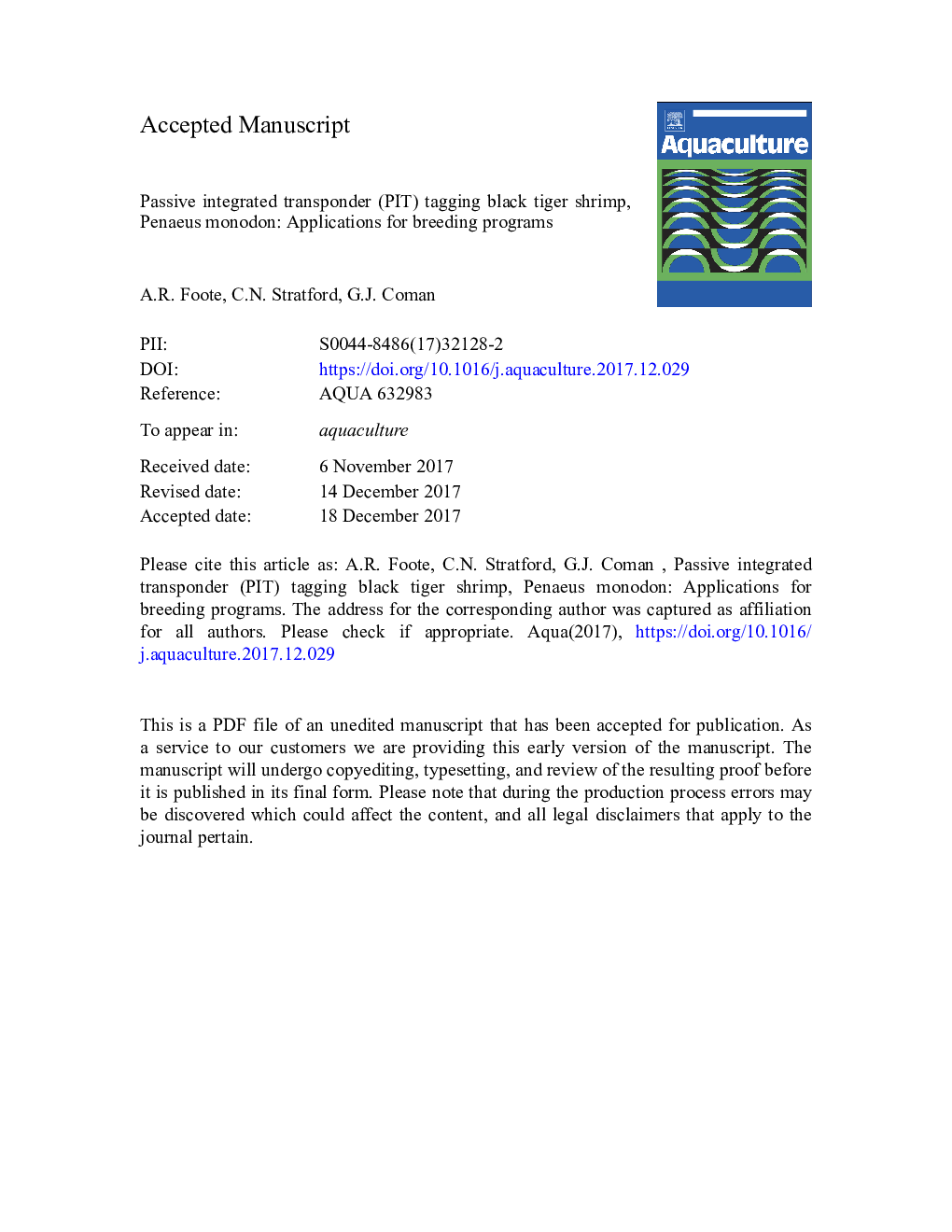| Article ID | Journal | Published Year | Pages | File Type |
|---|---|---|---|---|
| 8493261 | Aquaculture | 2018 | 15 Pages |
Abstract
Passive integrated transponder (PIT) tagging provides a practical method of long term and high-throughput tagging and tracking of shrimp in a commercial context. Identification of individual broodstock can allow informed mating decisions necessary to identify individuals in a breeding program. The effects of PIT tags on mortality were assessed following tag insertion into one of three separate treatment locations in the abdominal muscle of juvenile Penaeus monodon, while animals in a control treatment were tagged with an alternative tag type currently used commercially: an external eye stalk tag. 336 animals were tagged in total and their survival tracked over 28Â days in three replicate indoor tanks consistent with a commercial maturation facility. Low mortality was observed across all treatments over 28Â days (<Â 14% mortality in the control, and <Â 8% in PIT tagged treatments), with no significant difference in mortality rates among the treatments and control treatment (Ï2Â =Â 5.26, PÂ =Â 0.15). Therefore, it can be recommended that PIT tagging at any of the locations described could be adopted and used in a commercial shrimp breeding scenario.
Related Topics
Life Sciences
Agricultural and Biological Sciences
Aquatic Science
Authors
A.R. Foote, C.N. Stratford, G.J. Coman,
